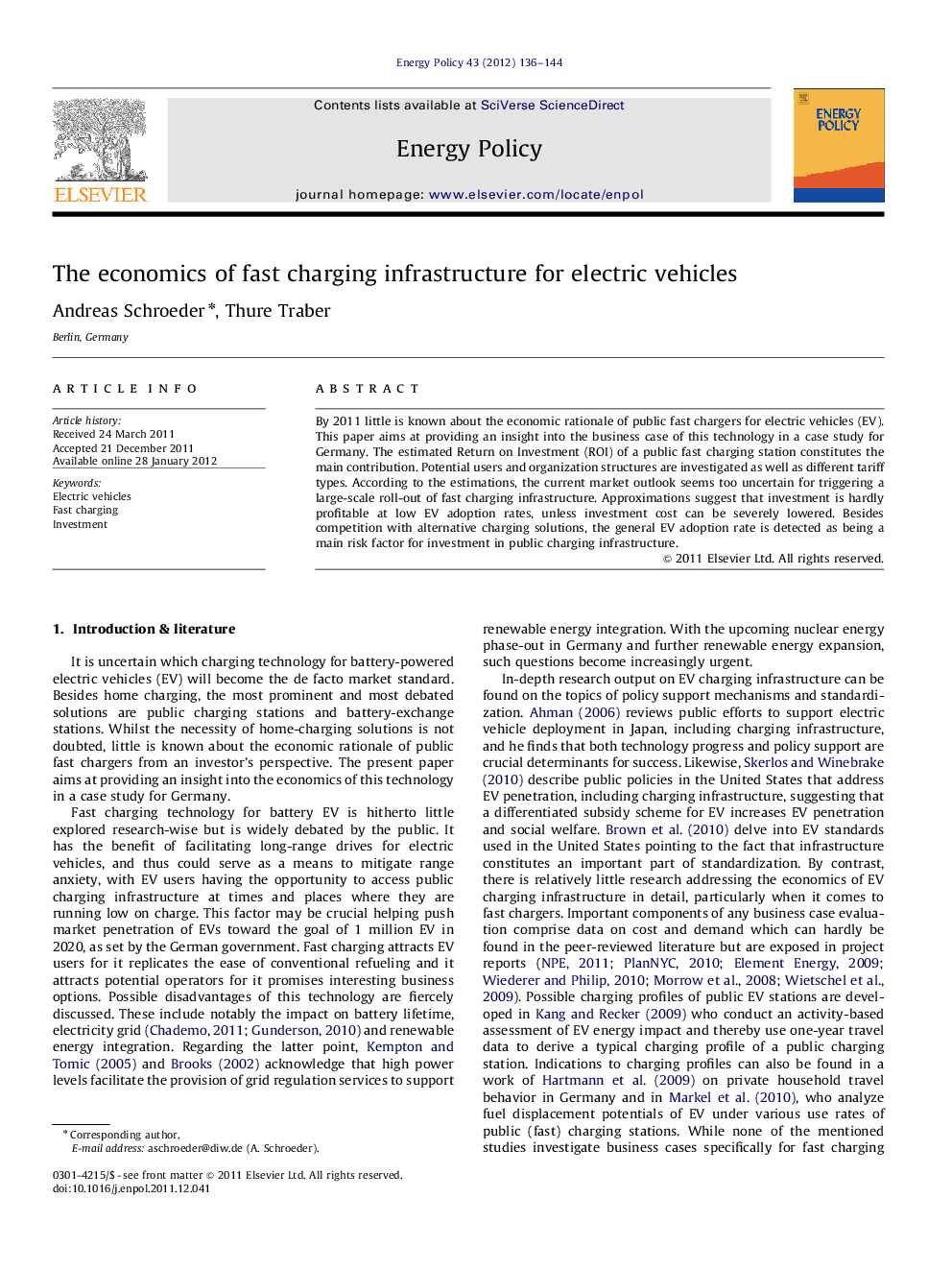| Article ID | Journal | Published Year | Pages | File Type |
|---|---|---|---|---|
| 994845 | Energy Policy | 2012 | 9 Pages |
By 2011 little is known about the economic rationale of public fast chargers for electric vehicles (EV). This paper aims at providing an insight into the business case of this technology in a case study for Germany. The estimated Return on Investment (ROI) of a public fast charging station constitutes the main contribution. Potential users and organization structures are investigated as well as different tariff types. According to the estimations, the current market outlook seems too uncertain for triggering a large-scale roll-out of fast charging infrastructure. Approximations suggest that investment is hardly profitable at low EV adoption rates, unless investment cost can be severely lowered. Besides competition with alternative charging solutions, the general EV adoption rate is detected as being a main risk factor for investment in public charging infrastructure.
Graphical abstractFigure optionsDownload full-size imageDownload as PowerPoint slideHighlights► Private investment into public fast charging infrastructure appears to be driven by other than pure project prospects at current EV penetration rates. ► High cost markups are needed to refinance investment, unless grid tariffs are exempted or constant high demand is assured. ► Investment into public fast charging remains risky and incentives can be contained by the spreading of alternative home-charging devices and alternative propulsion technologies.
